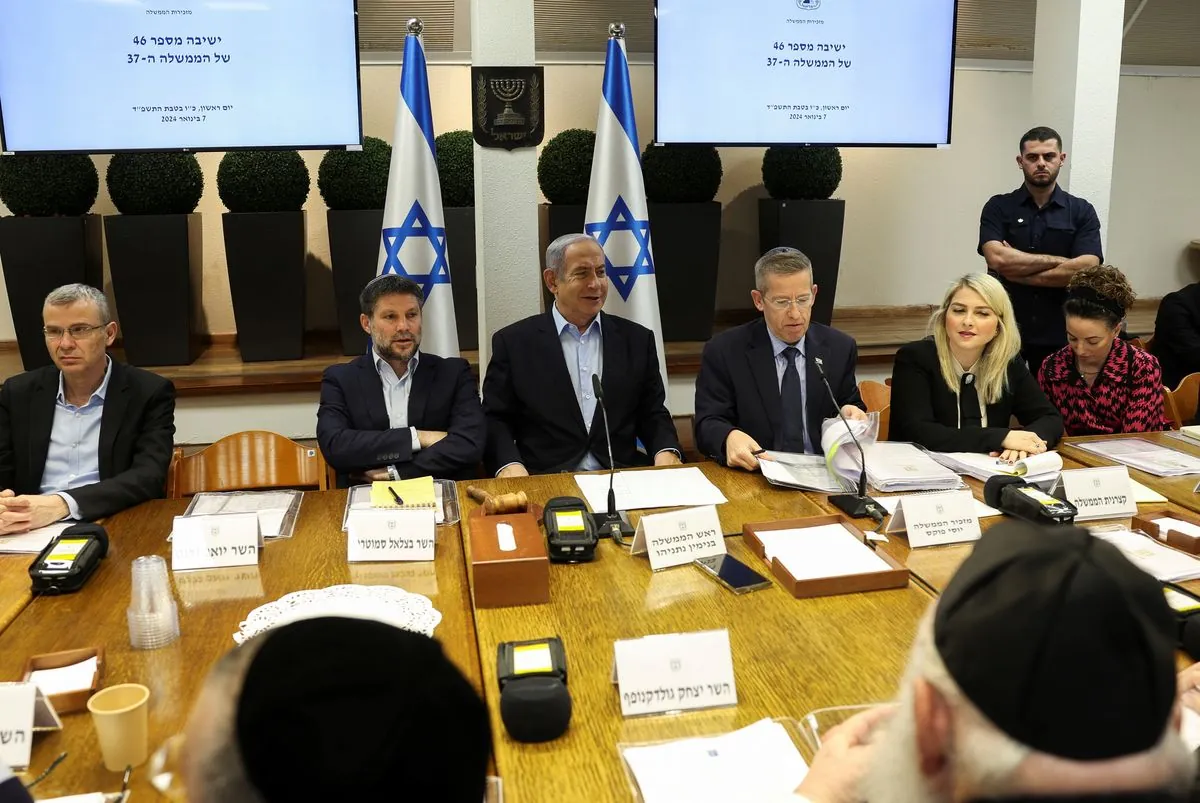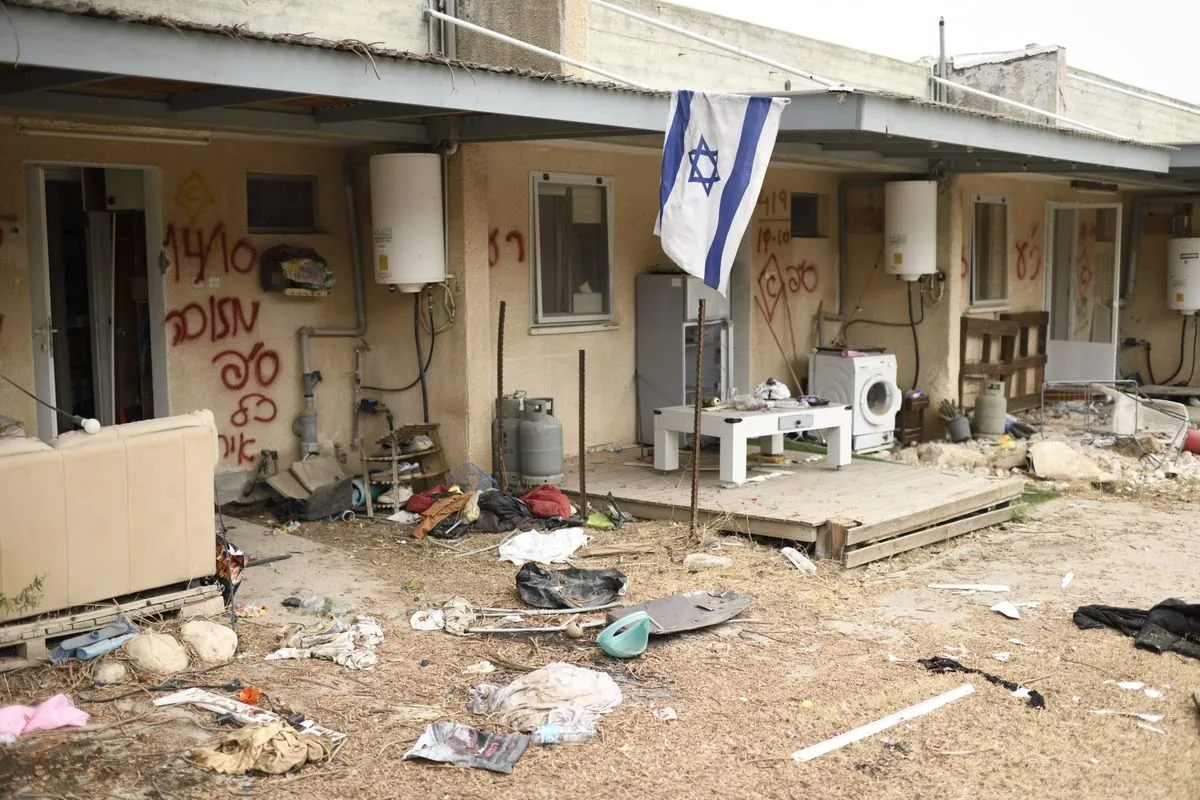Israel Boosts 2024 Budget by $923 Million for Evacuee Support
Israel's cabinet approves a 3.4 billion shekel budget increase for 2024 to aid evacuees from conflict zones. The expansion aims to support displaced citizens without affecting the deficit target.

In a significant financial move, Israel's cabinet has greenlit a substantial increase to the 2024 state budget, allocating 3.4 billion shekels ($923 million) to support evacuees from conflict zones. This decision, announced by the Finance Ministry, comes nearly ten months after the outbreak of hostilities between Israel and Hamas on October 7, 2023.
The budget expansion is primarily aimed at assisting tens of thousands of Israelis who have been displaced from their homes in northern Israel and Gaza border communities. These areas, classified as "conflict zones" by the cabinet, have been subject to persistent rocket attacks from Hezbollah, necessitating the relocation of residents to hotels and other temporary accommodations.

Breaking down the financial package, 525 million shekels have been redirected from previous spending cuts, while an additional 200 million shekels have been earmarked for army reservists. The Finance Ministry is now working to expedite these budget adjustments through parliamentary approval.
Bezalel Smotrich, the Finance Minister, has assured that this substantial increase will not impact the country's deficit target. Despite the current deficit reaching 8.1% of GDP in July 2024 due to heightened military expenditures, Smotrich maintains that the 2024 deficit goal of 6.6% of GDP remains achievable.
This financial strategy reflects Israel's commitment to balancing national security needs with economic stability. The country's economy, ranked 31st globally by nominal GDP in 2023 at $522.033 billion, has shown resilience in the face of ongoing regional tensions.
Israel's economic landscape is characterized by its advanced market economy, with a strong emphasis on high-tech industries and industrial manufacturing. The country is renowned for its significant investment in research and development, boasting one of the highest percentages of GDP allocated to this sector worldwide.
The current situation underscores the complex interplay between Israel's security challenges and its economic policies. The need to support displaced citizens while maintaining fiscal discipline highlights the multifaceted approach required in managing the nation's resources during times of conflict.
As Israel navigates these challenging circumstances, the role of institutions like the Knesset (Israel's 120-seat unicameral parliament) and the Bank of Israel (established in 1954) becomes increasingly crucial in shaping and implementing effective economic strategies.
The ongoing conflict and its economic implications also draw attention to Israel's broader geopolitical context. With a northern border stretching approximately 120 kilometers along Lebanon, the country continues to rely on advanced defense systems like the Iron Dome, first deployed in 2013, to protect its citizens from rocket attacks.
As the situation evolves, the Israeli government's ability to balance security needs, economic stability, and the welfare of its citizens will remain under close scrutiny, both domestically and internationally.


































